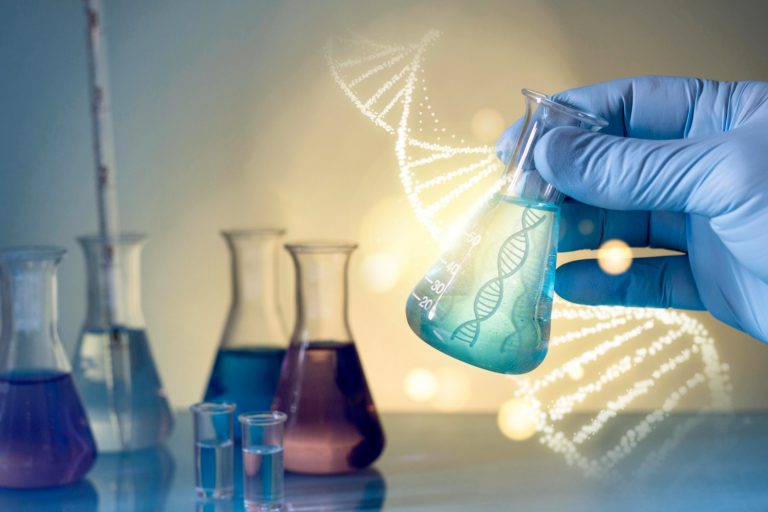
Chemistry Impact is an integral part of our daily lives, affecting various aspects of our existence. From the food we eat to the technology we use, chemistry plays an important role in shaping our modern lifestyle. In this article, we will explore the various ways in which chemistry affects our daily routine and how it has revolutionized the world we live in.
The Chemistry Impact of Food and Nutrition
Chemistry plays a fundamental role in the preparation and processing of the food we consume. From the simple act of cooking, where chemical reactions transform raw materials into delicious dishes, to the complex process of digestion, chemistry is at work. Nutrients such as carbohydrates, proteins and fats are broken down and absorbed in our bodies through chemical reactions, providing us with the energy and sustenance we need to function.
Chemistry Impact in Medicine and Healthcare
In the field of medicine and health care, chemistry has been a game-changer. Pharmaceutical drugs are developed through complex chemical processes, which target specific diseases and promote wellness. Diagnostic tests, such as blood tests and DNA analysis, rely on chemical reactions to accurately detect diseases and disorders. In addition, chemical research has led to advanced medical imaging technologies, allowing for early detection and improved treatment outcomes.
The Role of Chemistry in Cleaning Products
Chemistry plays an important role in manufacturing cleaning products that help us maintain cleanliness in our daily lives. Detergents, soaps and disinfectants work by breaking down dirt, oil and harmful microorganisms through chemical reactions. These products have become indispensable in our cleaning routine, ensuring a healthy and hygienic environment.
Chemistry in Personal Care and Beauty Products
Personal care and beauty products, such as shampoos, lotions and cosmetics, owe their efficacy to chemistry. Ingredients are carefully chosen and combined to create formulations that cleanse, moisturize and beautify. Chemical compounds such as antioxidants and UV filters protect our skin from environmental damage and premature ageing.
Read This Article : the important role of physics in technology
Chemistry Impact in Energy Production
The world’s energy production relies heavily on chemical processes. Fossil fuels, such as coal, oil and natural gas, undergo combustion reactions to generate electricity and power our industries. Furthermore, renewable energy sources such as solar panels and wind turbines involve complex chemical reactions to convert natural resources into sustainable energy.
Environmental Impact of Chemistry
While chemistry has made remarkable progress, it also has an impact on the environment. Chemical pollutants released from industrial processes and waste disposal can cause environmental degradation and climate change. Sustainable chemistry practices are being developed to reduce this impact and promote eco-friendly alternatives.
Chemistry Impact in Agriculture and Farming
Chemistry has changed agriculture and farming practices, increasing crop yields and increasing food production. Fertilizers, insecticides and herbicides are developed through chemical innovation to protect crops from pests and diseases, thereby ensuring food security for a growing population.
Chemistry Impact in Materials and Manufacturing
In the fields of materials science and manufacturing, chemistry has revolutionized the creation of new materials with improved properties. From lightweight and durable plastics to advanced composite materials used in aerospace and construction, chemistry has opened up new possibilities in engineering and design.
The Role of Chemistry in Technology
The electronics and technology industry relies heavily on chemistry for the development of semiconductors, conductive materials, and batteries. Chemistry has made miniaturization and portability possible, leading to the development of smartphones, computers and other gadgets that have become an integral part of our daily lives.
Chemistry Impact in Transportation
The automotive and transportation sectors benefit from the chemistry through advances in fuel efficiency and emissions reduction. The development of cleaner fuels and the design of lightweight materials for vehicles are the result of chemical research, contributing to a more sustainable transportation system.
Chemistry Impact in Household Products
The chemistry is present in many household products, such as paints, adhesives, and textiles. The composition of these products includes complex chemical formulas that meet specific consumer needs and preferences.
Chemistry Impact in Art and Pigments
Throughout history, chemistry has played an important role in the creation of pigments and dyes used in art. From ancient cave paintings to modern masterpieces, chemistry has enriched the art world with a vibrant array of colors.
Chemistry Impact in Sports and Exercise
Chemistry also affects the sports and exercise world. Sports nutrition products are designed using scientific principles to optimize performance and aid in post-workout recovery.
Conclusion
In conclusion, the impact of chemistry on our daily lives is deep and far-reaching. From the food we eat to the products we use, chemistry shapes modern life in ways we often take for granted. Adopting sustainable and responsible chemistry practices will be vital to ensure a brighter and healthier future for generations to come.
FAQs
- How does chemistry impact the food we eat? Chemistry plays a vital role in food preparation, digestion, and the development of food products that cater to various dietary needs.
- What are some examples of chemistry in healthcare? Pharmaceutical drugs, diagnostic tests, and medical imaging technologies are all examples of how chemistry influences healthcare.
- How does chemistry contribute to environmental issues? Chemical pollutants from industrial processes can lead to environmental degradation and climate change. Sustainable chemistry practices aim to minimize this impact.
- What role does chemistry play in agriculture? Chemistry is instrumental in the development of fertilizers, pesticides, and herbicides that enhance crop yields and food production.
- How does chemistry impact the development of technology? Chemistry enables advancements in electronics, conductive materials, and batteries, contributing to the evolution of modern technology.